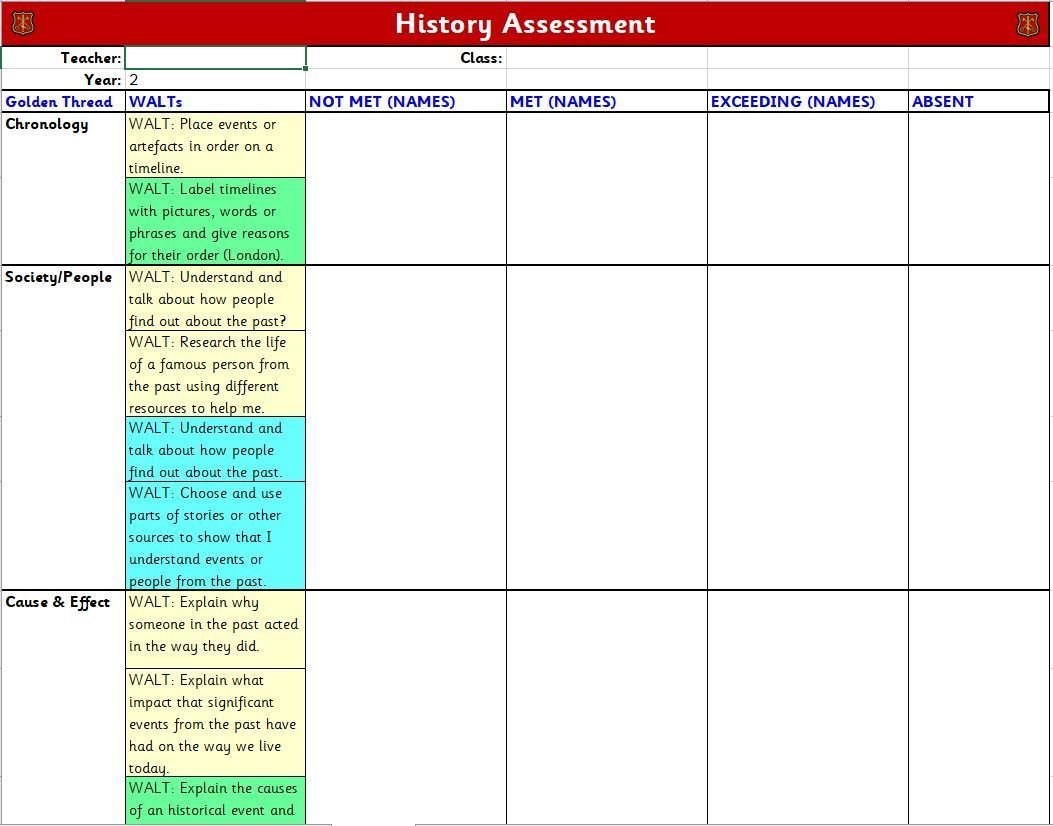Assessment
This page should be viewed in conjunction with our full Assessment Policy which can be found by clicking here.
English
Writing
Children are given regular opportunities to complete pieces of 'extended writing'. The term 'extended' is not always in relation to length, but refers to the process of planning, drafting and editing. These are generally based around the text being studied in English lessons, but can be from a range of cross-curricular learning such as R.E., history, science etc. Writing should also include a range of genres such as reports, stories, recounts explanations, instructions, diary entries, poems and plays. Teachers will use these pieces of independent writing to assess pupils’ against their writing targets.
Children will also be given a termly summative grammar, punctuation and spelling test.
Reading
Every day, there is designated timetabled time for reading. Teachers hear all of their children read once over a three-week period and keep notes on their progress. This is more frequent where it is required for certain children.
Whole-class reading, rehearsed reading and echo reading takes place in English lessons allowing teachers to make informal assessment of children's understanding. Teachers will use these reading tasks, along with reciprocal reading lessons and further comprehension activities (including weekly 'Cracking Comprehension' activities) to assess pupils reading.
Children will also be given termly summative reading test making use of the NFER resources.
As of the Summer Term 2024, assessment data in both Reading and Writing is recorded alongside Teacher Assessments on 'Insight' having been previously recorded as steps on Target Tracker.
Maths
Pupils are regularly assessed against their maths targets. Teachers will use a variety of informative methods of assessment throughout lessons, such as question and answers, AfL observations and marking of work to assess pupils’ understanding.
During formative assessment weeks, teachers will set specific tasks and activities to assess pupils’ progress against their targets.
Children are given a short, focussed assessment test at the end of each White Rose topic area.
They take part in full end-of-term summative White Rose maths assessments.
As of the Summer Term 2024, assessment data in Maths is recorded alongside Teacher Assessments on 'Insight' having been previously recorded as steps on Target Tracker.
Religious Education
After each topic, teachers will give pupils a short reflective task to assess their knowledge and understanding. They may use tasks from the Come and See Respond Booklet for that topic, or a similar task.
Teachers will use this task and their on-going formative methods such as marking of work, observations and question and answer sessions to assess the pupils against the key stage statements for that topic. These statements are stuck to the inside back cover of the RE
book and updated at the end of each completed topic. Pupils will also assess their understanding of the topic against the Big Question; teachers should be informed by the use and application of driver words and must embed them via direct teaching and independent tasks.
Teachers will then need to record on an end of Topic Assessment Spreadsheet which children are working at, working below or above the expected standard for their year group for that particular topic.
Each term pupils will also complete a moderated assessment task from one of the three topics studied. This will be done instead of the Respond Booklet or other assessment task carried out for that topic. The purpose of this assessment task is for moderation and inclusion in a school portfolio which can be used to produce a collation of exemplars showing secure levels within each strand. This is then used at moderating sessions internally and with other schools. At the end of the year, teachers will use all the end of topic assessment overview sheets and ticked attainment statements to assess whether a child is working at, working below or working above age related expectations and log this on 'Insight'
Science
Teachers will use a variety of informative methods of assessment throughout lessons, such as question and answers, AfL opportunities, observations and marking of work to assess pupils’ understanding of the topic being covered.
In each topic, children take part in a TAPs (Teacher Assessment In Primary Science) activity. These have three 'umbrella' headings of 'Plan', 'Do' and 'Review. These are broken down into six areas of focussed assessment for working scientifically: 'Ask Questions and Plan Enquiry', 'Set Up Enquiry', ' Observe and Measure', 'Record', ' Interpret and Report' and 'Evaluate'. By covering these areas on a repetitive cycle, children are given the chance to consolidate the skills they have been taught.
At the end of the year, teachers will use on-going formative assessment and summative tests to assess whether a child is working at, working below or working above age related expectations and currently log this on Insight.
Teachers also make use of target sheets which are shared at the start of each unit. This allow for a close monitoring of the knowledge required in each session as they are 'ticked off' for pupils as sessions progress.
Foundation Subjects
These are assessed against the Golden Threads associated with each subject. In-line with RE and Science, children are positioned at the end of each block of teaching as to having 'Not Met', 'Met' or 'Exceeded' against key expectations. By using this approach, there is a focus on key concepts, and various types of knowledge (including explicit, declarative and procedural). There is a real purpose to assessing in this way, as due to the repetition and progression employed in our curriculum, it allows teachers the chance to adapt future teaching for pupils, closing gaps for some and pushing others on further still. Knowledge is further assessed through the highlighting of the children's WALTs in their books during the marking process.
These closely link to Knowledge Organisers which detail key information for each year group in each subject area.
(Sample of our bespoke History Assessment tool)

















